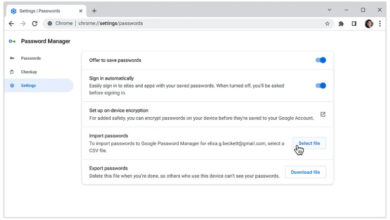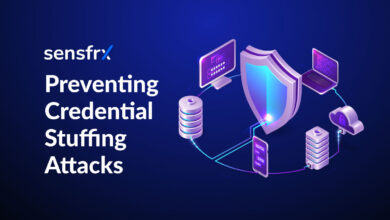
Beware of the Cyber Scam Related to Bond Movie No Time to Die
Beware of the cyber scam related to Bond movie No Time to Die! Seriously, those sneaky villains aren’t just on screen; they’re online too, trying to fleece unsuspecting fans. This isn’t your average phishing email – these scams are cleverly designed to exploit the hype around the latest 007 film, using social engineering and sophisticated tactics to steal your money and personal information.
Think you’re too smart to fall for it? Think again. Let’s dive into how these scams work and how to protect yourself.
From fake merchandise giveaways to convincing phishing emails promising exclusive content, the methods used are surprisingly diverse and effective. The scammers prey on our excitement for the film, using official-looking branding and urgent calls to action to manipulate our emotions and lower our guard. We’ll uncover the red flags to watch out for, explore the psychology behind these scams, and equip you with the knowledge and tools to stay safe online.
Understanding the Scam
The release of a highly anticipated blockbuster like “No Time to Die” often becomes a breeding ground for cybercriminals. Scammers exploit the excitement and public interest surrounding the film to lure unsuspecting victims into elaborate traps designed to steal their personal information and money. These scams are sophisticated and can be difficult to identify, making it crucial to understand their methods to protect yourself.The popularity of “No Time to Die” provided a perfect cover for various cyber scams.
These schemes preyed on fans’ eagerness to access exclusive content, win prizes, or participate in movie-related events. The financial losses suffered by victims can range from minor inconveniences to significant financial hardship, depending on the type of scam and the individual’s vulnerability.
Scam Tactics Employed
Scammers utilize several tactics to make their fraudulent activities appear legitimate. They often create fake websites mimicking official movie promotional sites, offering enticing prizes like free movie tickets, exclusive merchandise, or even cash giveaways. These websites are meticulously designed to appear authentic, often incorporating official movie logos and imagery. Phishing emails are also commonly used, posing as official communications from the movie studio or related organizations.
These emails often contain urgent requests for personal information, such as credit card details or login credentials, under the guise of verifying eligibility for prizes or accessing exclusive content. The pressure tactics employed by these scammers aim to bypass critical thinking and encourage quick action from the recipient.
Potential Financial Losses
The financial consequences of falling victim to a “No Time to Die” themed cyber scam can be severe. Victims might experience direct financial losses through fraudulent credit card charges, unauthorized bank transfers, or the purchase of counterfeit merchandise. Beyond direct monetary losses, victims may also face identity theft, resulting in further financial and personal damage. The emotional distress and time spent rectifying the damage caused by these scams should also be considered as significant costs.
In some cases, victims may have difficulty recovering their losses, leading to prolonged financial hardship. For example, a victim might lose several hundred dollars to a fake ticket giveaway, or even thousands if their bank account is compromised.
Leveraging Movie Popularity for Trust
The success of “No Time to Die” at the box office and its widespread popularity played a key role in the success of these scams. Scammers leveraged the movie’s brand recognition and the public’s trust in established institutions to create a sense of legitimacy. By incorporating official movie imagery and mimicking legitimate communication styles, they were able to bypass the suspicion of many potential victims.
The urgency and excitement surrounding the film’s release created a sense of fear of missing out (FOMO), encouraging quick action without critical evaluation. This emotional manipulation was crucial in bypassing security measures and facilitating successful scams.
Examples of Phishing Emails and Websites
The following table provides examples of the types of phishing emails and websites used in the “No Time to Die” themed scams. Note that these are examples and the specifics may vary.
| Example | Method | Target | Outcome |
|---|---|---|---|
| Email claiming free movie tickets in exchange for personal information | Phishing Email | Movie fans | Identity theft, financial loss |
| Website offering exclusive merchandise at discounted prices, leading to malware download | Malicious Website | Movie merchandise buyers | Malware infection, financial loss |
| Fake online competition promising a meet-and-greet with actors | Fake Competition | Dedicated fans | Financial loss, personal data breach |
| Text message claiming a prize win requiring a payment to claim it | Smishing | Moviegoers | Financial loss |
Identifying Red Flags: Beware Of The Cyber Scam Related To Bond Movie No Time To Die
The excitement surrounding a new James Bond film can make us vulnerable to scams. Cybercriminals prey on this enthusiasm, creating elaborate schemes to steal your money and personal information. Learning to identify the red flags associated with these fraudulent offers is crucial to protecting yourself. By understanding the tactics used, you can significantly reduce your risk of becoming a victim.These scams often employ deceptive techniques to appear legitimate.
They might use official-looking logos, high-quality images, and convincing narratives to lure unsuspecting fans. However, a closer look reveals inconsistencies and irregularities that expose their fraudulent nature. Pay close attention to details; they are often the key to uncovering a scam.
Seriously, folks, those “No Time to Die” bond-themed phishing scams are rampant! It’s crazy how sophisticated they’ve become. Building secure applications is crucial, and that’s where understanding the future of app development, like learning about domino app dev the low code and pro code future , comes in. This knowledge helps developers create safer platforms, hopefully making us all less vulnerable to these Bond-villain-level cyberattacks.
Suspicious Email Addresses, Website Domains, and Social Media Accounts
Fraudulent offers frequently use email addresses, website domains, and social media accounts that mimic legitimate sources but contain subtle differences. For example, a legitimate Bond-related email might come from a domain like @mgm.com or @eonproductions.com, while a scam email might use a similar-looking domain like @mgm-promotions.net or @eonproductions-rewards.co.uk. The addition of extra words, slightly altered spellings, or different top-level domains (like .net, .co.uk instead of .com) are common giveaways.
Similarly, fraudulent websites might use URLs that are very close to the official website but include extra characters or slightly different spellings. Social media accounts might have a similar name to the official account but with minor variations or a suspiciously low number of followers. Always verify the legitimacy of the source by checking the official website or social media pages of Eon Productions or MGM.
Checklist of Warning Signs
Before engaging with any “No Time to Die”-related offer, it’s essential to carefully review the following checklist:
- Unusually good deals: Offers that seem too good to be true, such as extremely discounted merchandise or unbelievably generous prizes, are often a red flag.
- Urgent deadlines: Pressure tactics that emphasize limited-time offers or immediate action should raise suspicion. Legitimate promotions rarely employ such aggressive techniques.
- Requests for personal information: Legitimate companies rarely request sensitive personal data like bank account details or social security numbers through unsolicited emails or websites.
- Poor grammar and spelling: Grammatical errors and spelling mistakes in emails, websites, or social media posts often indicate a lack of professionalism and suggest a fraudulent operation.
- Suspicious payment methods: Requests for payment through unconventional methods, such as wire transfers or prepaid debit cards, should be avoided. Legitimate companies typically offer secure and established payment options.
- Unverified contact information: Lack of a physical address or verifiable contact information on a website or in an email should raise concerns.
- Unprofessional design and layout: Poorly designed websites or emails with unprofessional layouts can be indicators of a scam.
Comparing Legitimate and Fraudulent Bond Merchandise Promotions
Legitimate Bond merchandise promotions will typically be advertised through official channels, such as the official James Bond website, authorized retailers, or social media pages associated with Eon Productions or MGM. They will utilize professional-looking marketing materials, clear and transparent terms and conditions, and secure payment gateways. In contrast, fraudulent promotions may use unofficial channels, poorly designed marketing materials, unclear terms and conditions, and insecure or unconventional payment methods.
Legitimate promotions will rarely, if ever, involve unexpected requests for personal information or unusually high-pressure sales tactics. Always verify the legitimacy of the source before engaging with any promotion.
Protecting Yourself

Falling prey to online scams, especially those cleverly disguised as legitimate promotions tied to popular franchises like “No Time to Die,” is a real threat. However, by adopting proactive measures and staying vigilant, you can significantly reduce your risk. This section Artikels practical steps to safeguard yourself from such cybercrimes.
Protecting yourself from these scams involves a multi-pronged approach: careful browsing habits, robust security measures, and prompt reporting of suspicious activity. Let’s break down each aspect to ensure you’re well-equipped to navigate the digital landscape safely.
Safe Browsing Practices
Navigating the internet safely, especially when encountering content related to popular movies like “No Time to Die,” requires caution and awareness. Avoid clicking on links or downloading attachments from unknown or untrusted sources. Verify the legitimacy of websites before entering personal information. Look for secure connections (HTTPS) and official website domains.
- Always verify the URL of a website before entering any personal information. Legitimate websites will usually have a clear and trustworthy domain name.
- Hover over links before clicking to see the actual URL. This helps identify potentially malicious links disguised as legitimate ones. A suspicious URL might contain unusual characters or misspellings.
- Be wary of unsolicited emails or messages promising exclusive “No Time to Die” merchandise or giveaways. Legitimate organizations rarely use such methods.
- Avoid clicking on links or downloading attachments from emails or messages from unknown senders.
Securing Online Accounts and Financial Information
Strong passwords and multi-factor authentication are crucial in protecting your online accounts and financial information. Regularly reviewing your accounts for unauthorized activity is equally important. Implementing these measures adds layers of security, making it harder for scammers to access your sensitive data.
- Use strong, unique passwords for all your online accounts. Avoid using easily guessable passwords or reusing the same password across multiple accounts.
- Enable two-factor authentication (2FA) wherever possible. This adds an extra layer of security by requiring a second verification method, such as a code sent to your phone, in addition to your password.
- Regularly review your bank and credit card statements for any unauthorized transactions. Report any suspicious activity immediately to your bank or credit card company.
- Be cautious about sharing personal information online. Only provide information to trusted websites and organizations with secure connections (HTTPS).
Reporting Suspicious Activity
Reporting suspicious activity is vital in combating cybercrime. By reporting scams, you help protect others and assist law enforcement in tracking down perpetrators. Various channels are available for reporting, depending on the nature of the scam.
- Report phishing emails and suspicious websites to the appropriate authorities, such as the Federal Trade Commission (FTC) in the US or your country’s equivalent agency.
- If you believe you have been a victim of a financial scam, report it to your bank or credit card company immediately.
- Contact your local law enforcement if you suspect you’ve been targeted by a more serious cybercrime.
- Consider reporting the scam to the website or platform where you encountered it, if applicable.
The Role of Social Engineering
Social engineering is the dark heart of many cyber scams, including those preying on the excitement surrounding the release of a Bond film likeNo Time To Die*. It’s not about hacking computers; it’s about hacking human psychology. Scammers exploit our natural tendencies to trust, to be helpful, and to want things we perceive as valuable, manipulating our emotions to get us to hand over our personal information or money.These scams often leverage the anticipation and excitement surrounding a popular movie release.
Imagine an email promising exclusive behind-the-scenes footage or a limited-edition collectible, only accessible through a specific link. This taps into our desire for unique experiences and creates a sense of urgency, making us more likely to click without thinking critically. The urgency is often further amplified by fake deadlines or limited-time offers.
Examples of Emotional Manipulation
Scammers are masters of emotional manipulation. They prey on our fears, anxieties, and desires. For example, a scam might claim your identity has been stolen and that you need to immediately transfer funds to a “secure” account to prevent further damage. This plays on the fear of identity theft, triggering a panic response that overrides rational thought. Alternatively, a scam might offer an incredibly lucrative investment opportunity related to the movie’s success, appealing to greed and the desire for quick riches.
The scammer might even personalize the message, referencing details they’ve gleaned from your social media profiles to build trust.
Psychological Factors Contributing to Vulnerability, Beware of the cyber scam related to bond movie no time to die
Several psychological factors increase susceptibility to social engineering. The reciprocity principle suggests we feel obligated to return favors, even if seemingly small. A scammer might start with a seemingly harmless request before escalating to a more damaging one. Authority bias makes us more likely to obey perceived authority figures, so a scammer might impersonate a bank official or a government employee.
Scarcity and urgency, as mentioned earlier, create a sense of pressure to act quickly, leaving no time for critical thinking. Finally, trust, especially when combined with a positive association (like a beloved movie franchise), makes us less cautious and more prone to falling for a scam.
Improving Resistance to Social Engineering
Developing a healthy skepticism is crucial. Before clicking any links or sharing personal information, take a moment to verify the sender’s identity. Look for inconsistencies in email addresses, websites, and grammar. Remember, legitimate organizations rarely request personal information through unsolicited emails or messages. If an offer seems too good to be true, it probably is.
Take your time to verify the information through official channels. Educate yourself and your loved ones about common social engineering tactics to build collective awareness and resilience against these scams. Ultimately, a critical and cautious approach is your best defense.
Visual Representations of the Scam
Understanding how cybercriminals visually present their scams is crucial to avoiding them. These scams often leverage the popularity and trust associated with well-known brands like the James Bond franchise to lure victims. Let’s examine some common visual tactics used in the “No Time to Die” bond movie scam.
Phishing Email Example
A convincing phishing email would aim to mimic the official style and tone of a legitimate “No Time to Die” promotion. The subject line might read something like: “You’ve Won a VIP Trip to the No Time to Die Premiere!” or “Exclusive No Time to Die Merchandise Giveaway!”. The sender’s email address would be carefully crafted to appear legitimate, perhaps using a slightly altered version of an official Eon Productions address or a similar-sounding domain.
The email body would contain enticing offers, such as a free trip to a premiere, exclusive merchandise, or a significant cash prize, all contingent on clicking a link to claim the prize. The link would, of course, lead to a fraudulent website designed to steal personal information. The email might include seemingly official logos and imagery from the movie to enhance its credibility.
Fake Website Mimicking Official Site
The fake website would closely resemble the official “No Time to Die” website, using similar color schemes, fonts (likely a similar sans-serif font like the official site), and imagery. The layout would mimic the official site’s structure, with sections for news, cast information, and potentially even a fake merchandise store. However, subtle differences would be present. The domain name might be slightly misspelled or use a less common top-level domain (TLD) such as “.net” instead of “.com”. The quality of the images might be lower resolution or slightly off. Navigation links could lead to unexpected pages or prompt for unnecessary information. The “About Us” section might contain fabricated information. The most obvious giveaway might be the inclusion of poorly translated text, grammatical errors, or inconsistencies in branding. Crucially, the website would contain forms requesting personal details like credit card information, social security numbers, or login credentials, under the guise of processing the “prize” or confirming eligibility. The website’s contact information would likely be fake or untraceable.
Fraudulent Social Media Post
A fraudulent social media post might advertise a “No Time to Die” giveaway or contest. It would likely feature high-quality images or videos from the film, possibly even incorporating official movie clips to appear more legitimate. The post would promise an attractive prize, such as signed movie memorabilia, a meet-and-greet with cast members, or even a large sum of money.
The post would include a call to action, urging users to like, share, and comment on the post, or click a link to enter the contest. This link would often lead to a phishing website or a page asking for personal information under the guise of registration. The post might also include fake testimonials or comments from other supposedly “lucky winners” to further enhance its credibility.
The account posting the giveaway might have a recently created profile with few followers and a suspicious profile picture.
Final Review

So, while you’re enjoying the thrilling escapades of James Bond on the big screen, remember that the real-world dangers of cybercrime are just as real. Don’t let your excitement for No Time to Die lead to financial ruin or identity theft. By staying vigilant, educating yourself about these scams, and following the simple safety tips Artikeld above, you can protect yourself and enjoy the movie without the worry of online threats.
Remember, a little caution goes a long way in the digital world, so stay safe and keep those Bond villains where they belong – on screen!
FAQs
What happens if I fall victim to one of these scams?
Immediately contact your bank and credit card companies to report fraudulent activity. Change your passwords for all online accounts. Consider filing a police report and reporting the scam to the appropriate authorities.
Are there any official No Time to Die giveaways or contests?
Be extremely cautious. Legitimate giveaways are usually announced through official channels, such as the movie studio’s website or social media accounts. Always verify the legitimacy before participating.
How can I tell if an email is a scam?
Look for poor grammar, generic greetings, suspicious links, and urgent requests for personal information. Hover over links to see the actual URL before clicking. If something feels off, it probably is.
What if I accidentally clicked a suspicious link?
Don’t panic. Immediately close the webpage and run a malware scan on your computer. Change your passwords and monitor your bank accounts for any unauthorized activity.





